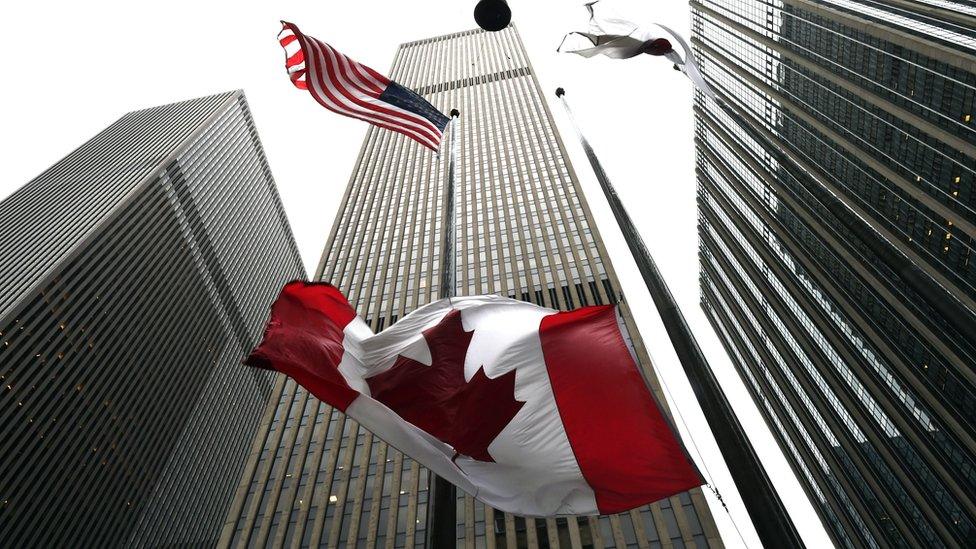How Canada can navigate the Trump transition
- Published
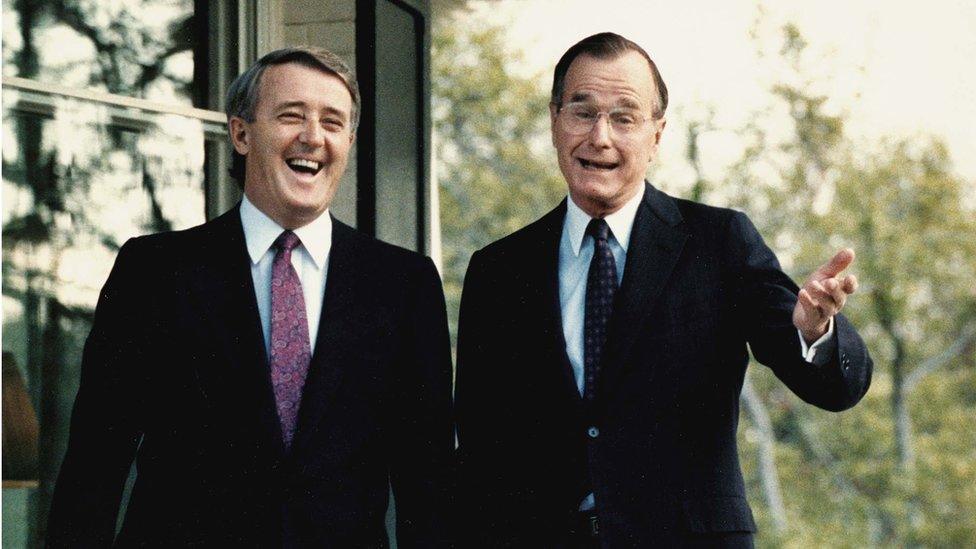
Former Prime Minister Brian Mulroney, pictured in this 1988 photo with George HW Bush, is advising the Trudeau government on managing the transition
Three former Canadian ambassadors to the United States have advice for the diplomats who will be working with the Trump administration. Here's what they had to say.
Build a great Rolodex, trot out some movie stars, and avoid headlines.
That is the advice some former Canadian ambassadors to Washington have for Prime Minister Justin Trudeau and his officials as they welcome the new president in the United States.
"There's only one game and that game is access and there's only one object of the game - you can call it influence," said Allan Gotlieb, who served as ambassador to the US from 1981 to 1989, when Ronald Reagan was president.
Mr Gotlieb and his wife, Sondra, became known in Washington circles for hosting parties, and the former ambassador maintains that injecting glamour into political affairs is one way into the heart of official Washington.
"The power people in Washington, they love celebrities," he said. "One of the most effective ways of getting people to the embassy is if you invite a famous movie star."
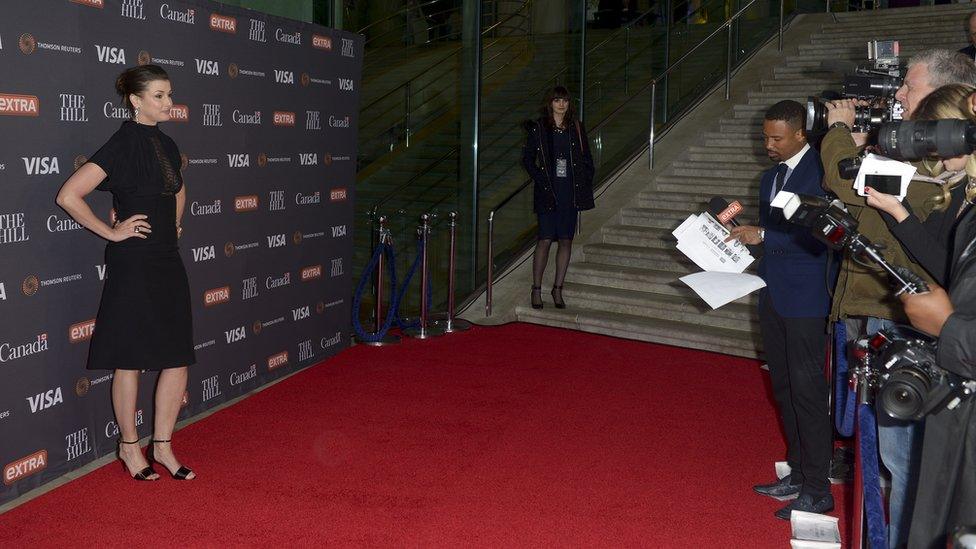
Canada's embassy in DC is known to host celebrity-filled parties
But it is not all glitz. Embassy staff need to have their ears to the ground.
"The greatest challenges of being an effective operator in the United States is intelligence, to know what's going on," said Mr Gotlieb.
The two countries have very different political systems. Power is less centralised in the the US than under Canada's parliamentary system, leaving plenty of opportunity for political horse trading and last-minute provisions being added to bills.
"Many times, some of the most difficult issues for us are created at two in the morning in the final moments of Congress putting some legislation to bed and something sneaks in," he said.
Derek Burney replaced Mr Gotlieb in Washington, serving as ambassador between 1989 and 1993 and helping to negotiate the North American Free Trade Agreement.
Mr Burney, along with former prime minister Brian Mulroney, have been advising the Trudeau government as they navigate the political transition in the US.
"My advice, for what it's worth, is don't be alarmed, don't panic, keep your cool," he said. "We're going to have differences, we always have."
He said getting the personal relationship between Mr Trudeau and President Donald Trump "off on the right footing" can help, but so does listening the voices in Congress.
The Trudeau government has been working hard to lay the groundwork for those personal relationships.
The prime minister's senior advisors and current ambassador David MacNaughton have been in regular contact with Mr Trump's top aides in DC and New York, including White House strategist Steve Bannon.
The prime minister also reshuffled his Cabinet earlier this month, bringing in a new foreign minister, Chrystia Freeland, who impressed Mr Trudeau with how she handled difficult negotiations on the Canada-EU trade deal and who has experience working in Washington.
He appointed MP and retired Lt Gen Andrew Leslie as Ms Freeland's parliamentary secretary, specially tasked with building the Canada-US relationship. Mr Leslie gained experience working with senior US generals during his time in the military.
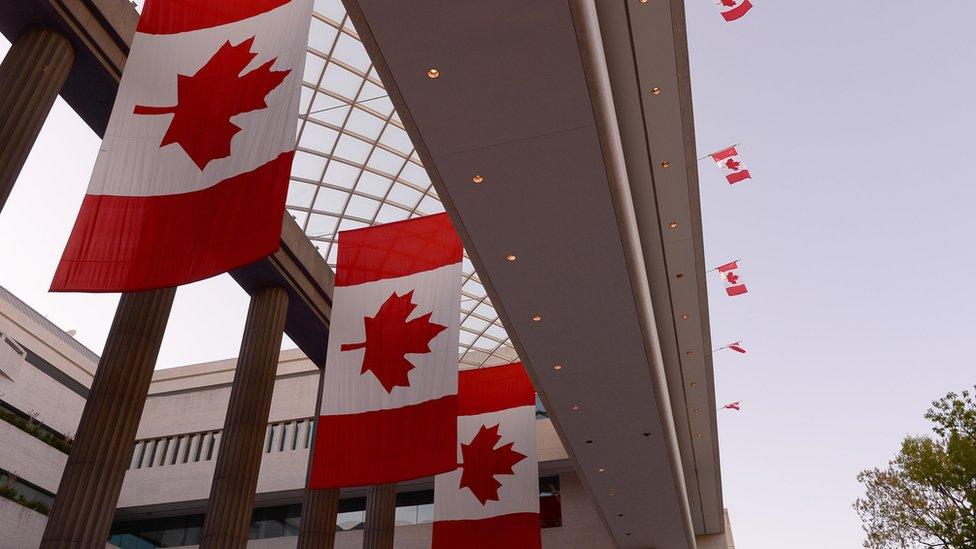
Canada's embassy in Washington
Their message has been that Canada, external is a reliable trading partner whose economy is deeply integrated with the US market, which thousands of jobs on both sides of the border depend on.
Canada has not been the target of much of Mr Trump's protectionist rhetoric, which has been directed mostly towards Mexico.
Michael Kergin, who served as top diplomat in DC for five years during George W Bush's presidency, warned trouble, especially over trade which is a frequent point of contention between the countries, is bound to happen.
"The day will come when we will be sorely tempted to respond to something that may be said by the administration or Trump himself," he said, and advised the Canadian team avoid "headline diplomacy" and to keep spats that do crop up behind closed doors.
Mr Burney agreed, saying: "If you want to slag the administration because of what it's doing, you'll get attention, But it won't be the kind of attention that pays a dividend in the long run."
He says quiet diplomacy does not mean avoiding conflict.
"We have to stand our ground and we have to do it in a manner that isn't irritable. Or sanctimonious," he said.
- Published11 January 2017
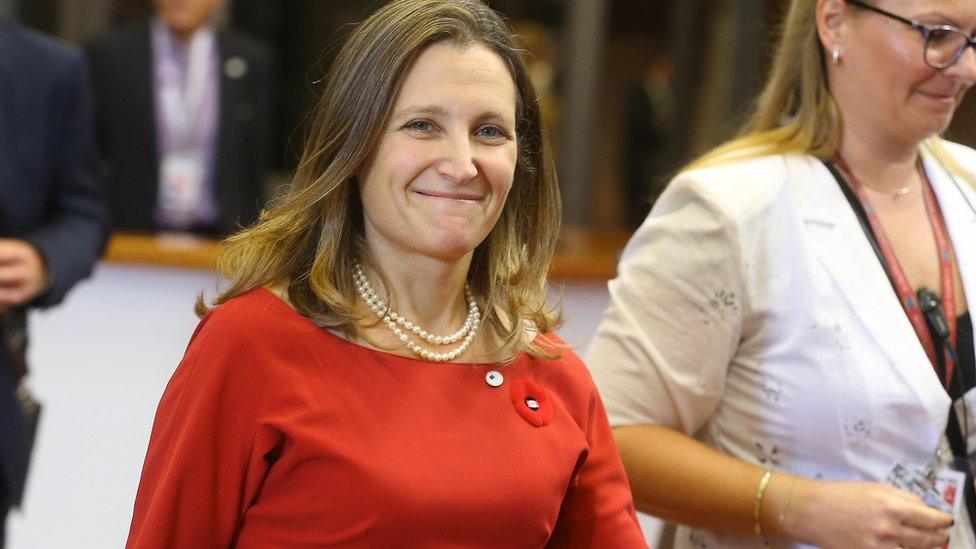
- Published10 November 2016
- Published9 November 2016
